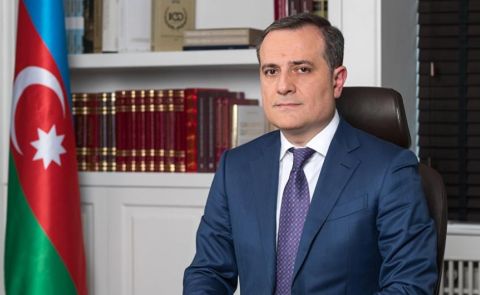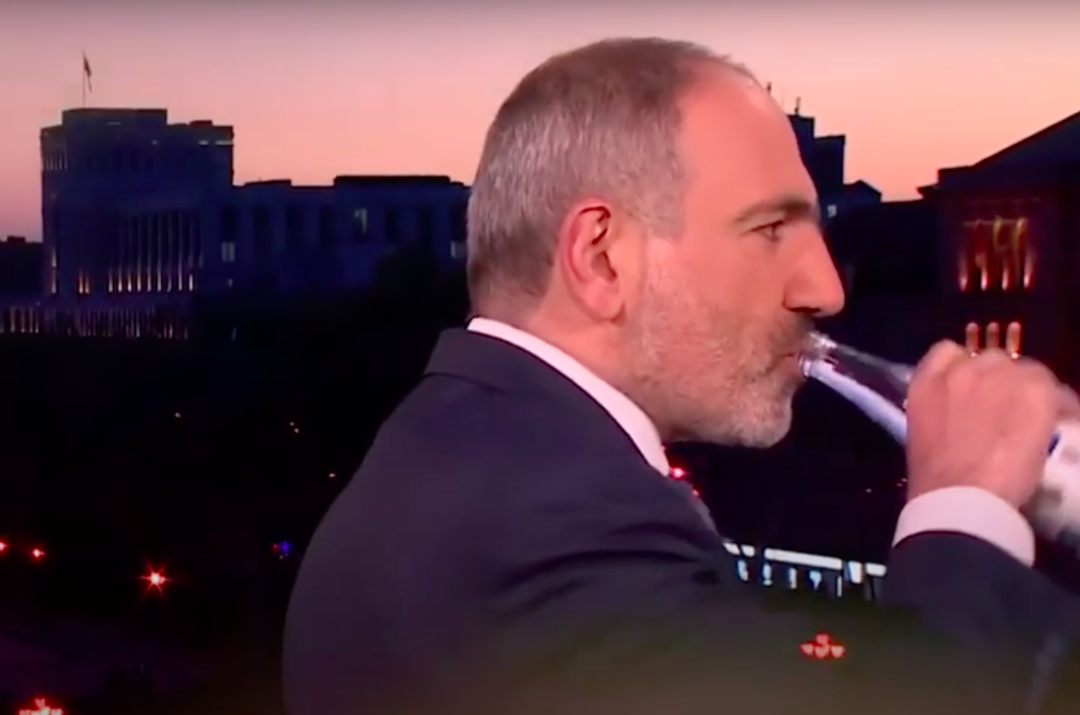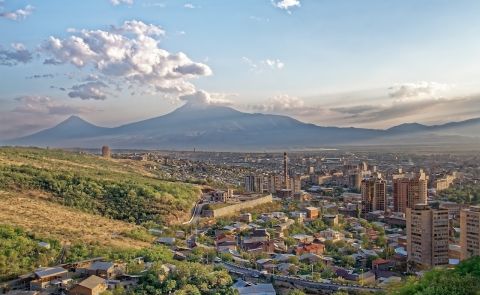
Armenian media landscape impacted after the leak of a satirical video leak of Pashinyan

On 18 April, off-air footage of PM Nikol Pashinyan preparing for his live TV broadcast from 17 April appeared on the internet, sparking a public outrage in Armenia, reported JamNews.
The footage portrayed Pashinyan in a mocking light. In the video, Pashinyan jokes, drinks from a bottle, takes medicine and coughs. The address was broadcast by Armenia’s Channel One (Public Television of Armenia), though other channels also carried it.
The Prime Minister’s press secretary Mane Gevorgyan reacted harshly to the distribution of the video, accusing Channel One of unprofessionalism and sloppy work. Then came clarifications from the TV channel stating that the preliminary broadcast footage was also available to other television channels broadcasting the prime minister’s appeal.
After the leak Pashinyan, said that it was time to review his staff and announced a new wave of layoffs from the state apparatus: “There will be no personnel purges, but those who abuse the ‘velvet revolution’ should be thrown out. People who abused the chance they got … should be excluded from the system of state administration. What happened in the year 2018 was emotions. The real revolution is happening now,” he stated.
Speculations began circling that Gevorgyan would be amongst the first persons to be dismissed from her post, but she strongly denied those speculations.
The Armenian Ombudsman Arman Totoyan regarded the video that appeared on the network as an immoral attempt to ridicule the country’s Prime Minister. “Such an attitude is unacceptable to a public person, adversary, political rival, friend or relative. We must be guided by deep respect for the symbols of our state and people: from the president to the prime minister, from the Armenian Apostolic Church to the Catholicos. Otherwise, we will have neither harmony in public life, nor peace and solidarity between generations,” he stated.
The leader of Pashinyan's My Step parliamentary faction Lilit Makunts said that the ruling political force expects clarifications from those who are responsible for disseminating this video to the public. According to her, this incident may have various explanations, but the matter is firstly about information security. “At the time when the Prime Minister did not know about the live broadcast, important information could have been voiced that was not intended for a wide audience. People who are responsible for this incident must be held accountable. If this does not happen, the bloc will turn to the National Commission on Television and Radio demanding that not only an explanation be given and that such incidents be ruled out in the future, but also that those guilty be held accountable,” she said. Makunts added that she did not consider Gevorgyan accountable in this regard, as “the technical details of the live broadcast do not fall within her responsibilities.”
Mikayel Melkumyan from the opposition Prosperous Armenia faction stated that the Public Television of Armenia and Pashinyan’s press service were responsible for the leakage of the off-air footage. However, he stressed that there was no need to make a big story out of all this. He highlighted that the incident once again proves that there is a problem of providing quality work in the public administration system of Armenia. “The level of training of employees and specialists in our country is falling year by year and we have talked about this issue many times,” he said.
The leader of opposition Bright Armenia faction Edmon Marukyan said that the leak proved that the Armenian Prime Minister does not have a competent team behind him. “The leak of the footage leads us to our previous conviction that the government does not have enough capacity to protect sensitive information for citizens,” he added. He also noted that there is nothing unusual in that footage, and everyone has such footage.
After the leak Pashinyan gave on 19 April a Facebook broadcast addressing several political issues in the country, as well as referring to the media scene. “How was the media field controlled? The 99 percent of the news outlets and 70 percent of journalists used to receive money from the authorities. Now they don’t receive money, as a result… they are furious. Even if they receive money from somewhere they do it cautiously, as they are afraid if it is revealed and they are disgraced,” he said.
The “Media Advocated” initiative responded to this statement by urging Pashinyan not to label his former colleagues, not to disseminate ungrounded information and publicize the names of the news outlets and journalists who received money.
The Head of Armenia’s Journalists Union Satik Seyranyan also criticized Pashinyan’s statement. “If it was said by another person, I would have tried to treat it with understanding. To understand why he says so, to analyze the reasons, lexicon, the nervous movements. During all these years the media headed by him worked in such a way. He was very clearly describing him[self] and his working style. But he forgets one thing, very often he tried to pick information from previous authorities through blackmailing. Everything that Nikol Pashinyan says does not correspond to reality and describes himself. Such a lexicon is not proper to the country's Prime Minister. He did not stop being a certain type of article writer serving the interests of a concrete segment,” she said.
Resignations also began in the Armenian Public TV following the scandal. The Executive director of Armenian Public TV Margarita Grigoryan submitted her resignation application describing the incident as unacceptable and expressed her anger over the “cheap step against ethical and partnership norms.” The director of Public TV’s creative affairs section Vardan Hakobyan also submitted his resignation.
See Also


Nordic-Baltic Delegation Meets Armenian Leaders to Discuss Regional Cooperation and Peace

Azerbaijan Strengthens Energy Partnerships with Multiple Countries

BP Strengthens Presence in Azerbaijan’s Offshore Energy Sector

Netanyahu’s Letter to Aliyev: Mutual Trust, Solidarity Following Hamas Attacks, Facilitating Dialogue Between Israel and Türkiye

